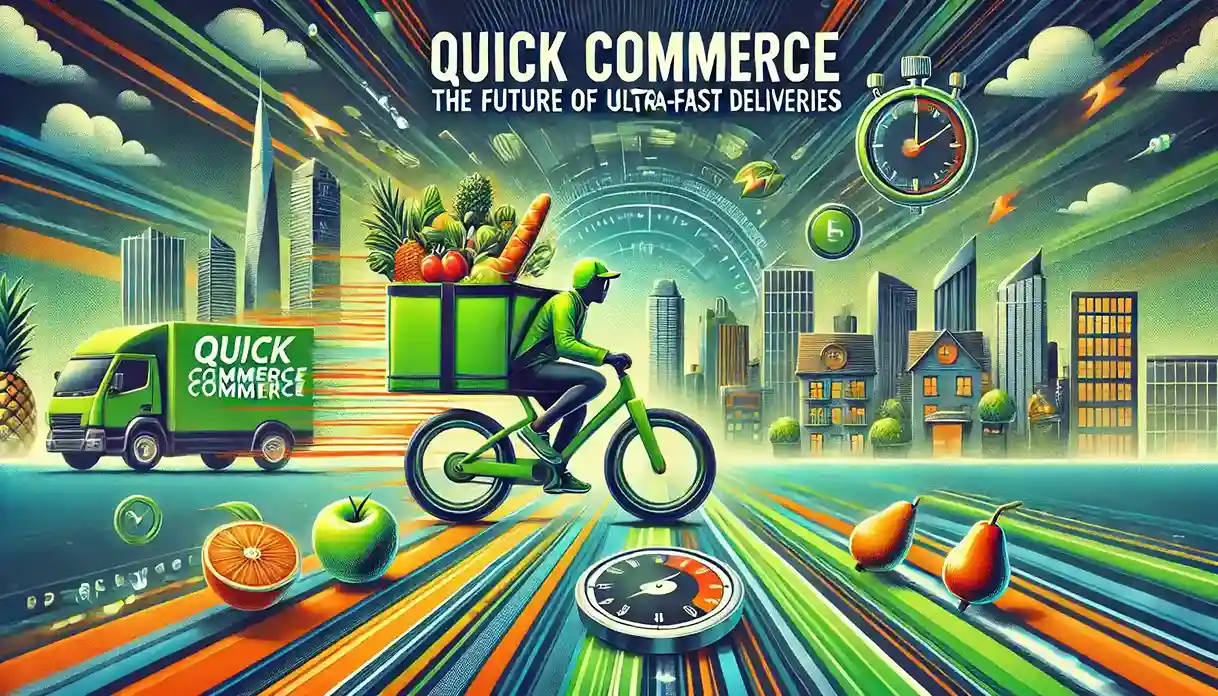
India's quick commerce market has seen rapid growth, with several key players making waves by offering ultra-fast delivery of essentials. Here's a look at some of the major players redefining convenience for consumers in India:
Each quick commerce company in India brings unique value to the market. For instance:
Most quick commerce companies in India are concentrated in metropolitan areas and Tier-1 cities, where demand for ultra-fast deliveries is highest. However, with increasing urbanization and the growing adoption of digital services, these companies are expanding to reach smaller cities and suburban regions. This growth is further fueled by factors like:
As these companies continue to scale, the future of quick commerce in India appears promising, with the potential to reshape the way consumers shop for daily essentials.
The backbone of quick commerce companies in India lies in their strategic use of localized warehouses, often known as “dark stores.” These are small, dedicated warehouses positioned close to urban centers to enable rapid deliveries. By placing these facilities in densely populated areas, companies can significantly reduce the time it takes to get products to the customer, often achieving delivery times within 10 to 30 minutes.
Unlike traditional stores, quick commerce operates on a highly selective inventory model. These businesses carry only the most in-demand items, such as groceries, snacks, and personal care products. By focusing on high-demand, essential items, they are able to keep operations lean, reduce storage costs, and ensure a quick turnaround from order to delivery.
The quick commerce business model is heavily reliant on advanced logistics and technology, which allow these companies to deliver orders at unprecedented speeds. Some of the core components include:
This business model is optimized for speed, efficiency, and customer satisfaction, allowing quick commerce companies to meet the demands of modern consumers who value instant access to daily essentials.
In today's fast-paced world, consumers increasingly expect instant access to goods at their fingertips. This demand for quick commerce is driven by the desire for convenience, speed, and efficiency in meeting everyday needs. As a result, quick commerce companies in India are thriving, leveraging technology and agile logistics to fulfill these expectations, ensuring that essentials are just a click away.
Quick commerce perfectly fits the lifestyle of India's busy, urban consumers, especially in large cities where time is at a premium. In metropolitan areas, where hectic schedules and long commutes are common, quick commerce business models provide a practical solution by offering rapid access to daily essentials. From fresh groceries to personal care items, quick commerce in India aligns with the fast-paced demands of urban life, making it an invaluable service in the modern retail landscape.
The future of quick commerce is bright, with vast potential to expand across more cities and deepen its reach within the retail market. However, this growth brings its own set of challenges. Sustainability and cost management are becoming critical as companies strive to balance rapid delivery with eco-friendly practices and cost-efficiency. Additionally, increasing competition within the quick commerce vs ecommerce space poses challenges for companies seeking to maintain a competitive edge while providing value to consumers. Despite these hurdles, the future of quick commerce in India looks promising, as the industry adapts to the evolving needs of its audience and explores innovative solutions for a sustainable future.
Quick commerce is revolutionizing the retail landscape by offering unmatched speed and convenience to consumers. With the ability to deliver essential items within minutes, quick commerce companies leverage advanced logistics and localized fulfillment to meet the ever-growing demand for immediate gratification. The innovative business models employed by these companies not only enhance the shopping experience but also address the busy lifestyles of urban dwellers, making quick commerce a vital part of modern consumer behavior.
As we look to the future, quick commerce holds immense potential to transform consumer shopping habits dramatically. By redefining convenience through ultra-fast deliveries, this model is poised to reshape how we view and interact with retail. As companies continue to innovate and adapt to consumer needs, quick commerce could become the standard for shopping, pushing traditional e-commerce models to evolve. Ultimately, the question remains: how will quick commerce influence our everyday lives in the years to come, and will it pave the way for a new era of retail that prioritizes speed and customer satisfaction?
We hope you found this exploration of quick commerce companies in India insightful! In our upcoming post, we'll dive deeper into a detailed comparison of quick commerce and traditional e-commerce. Discover how these two retail models stack up against each other in terms of delivery times, inventory management, customer experience, and more.
Stay tuned as we uncover the key differences and similarities, providing you with a comprehensive understanding of both sectors. Don't miss out on this informative follow-up!

WONDERACE IT
Wonderace IT is dedicated to delivering informative and authentic articles across a range of topics, including science, education, finance, and technology. Our mission is to provide true information to our audience, empowering them with knowledge and insights. Whether you're a curious learner, a tech enthusiast, or someone interested in staying updated with the latest developments, Wonderace IT offers valuable content that helps you stay informed and educated. Join us on this journey of discovery and learning.

2024-10-28
add your comment